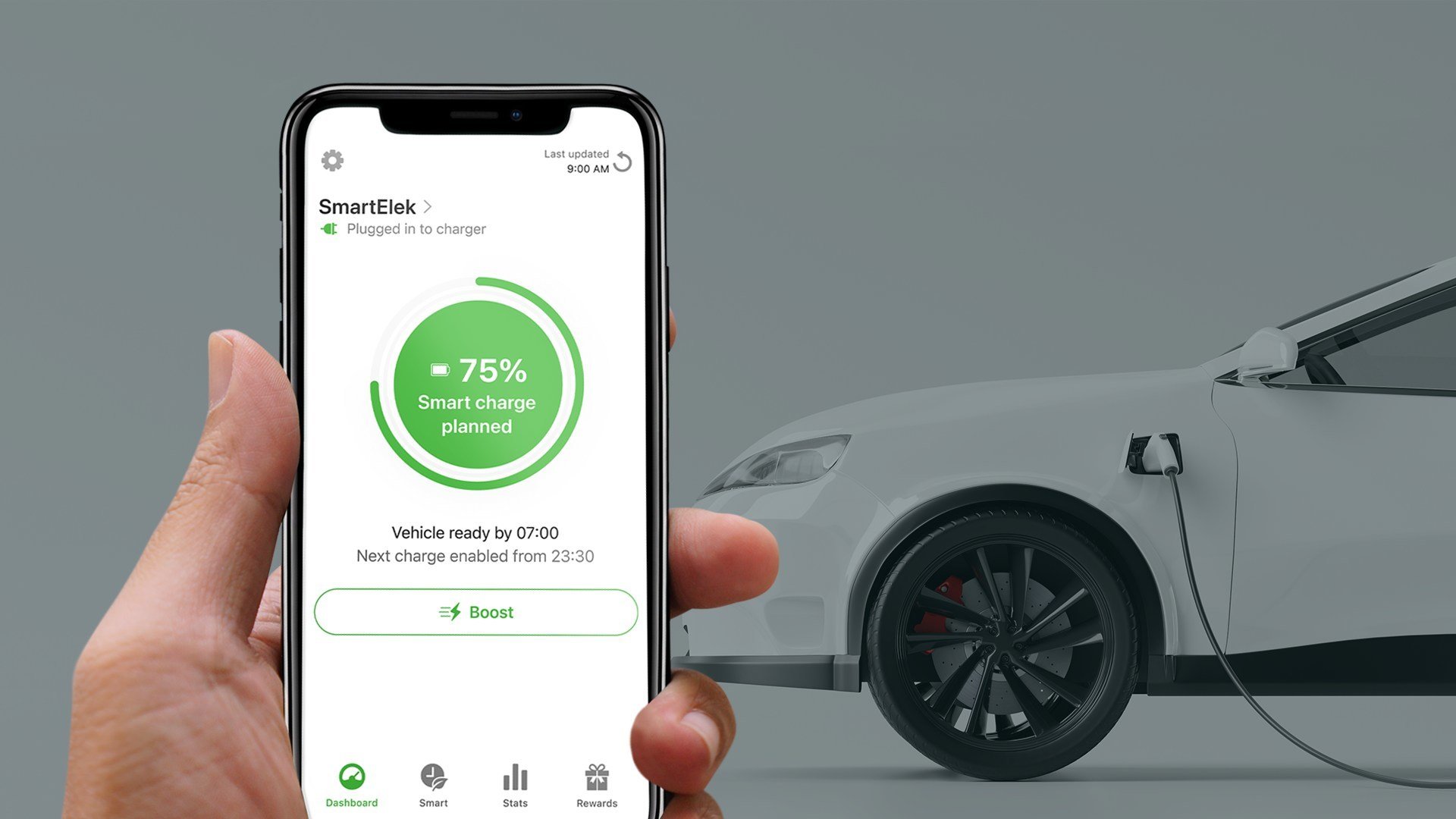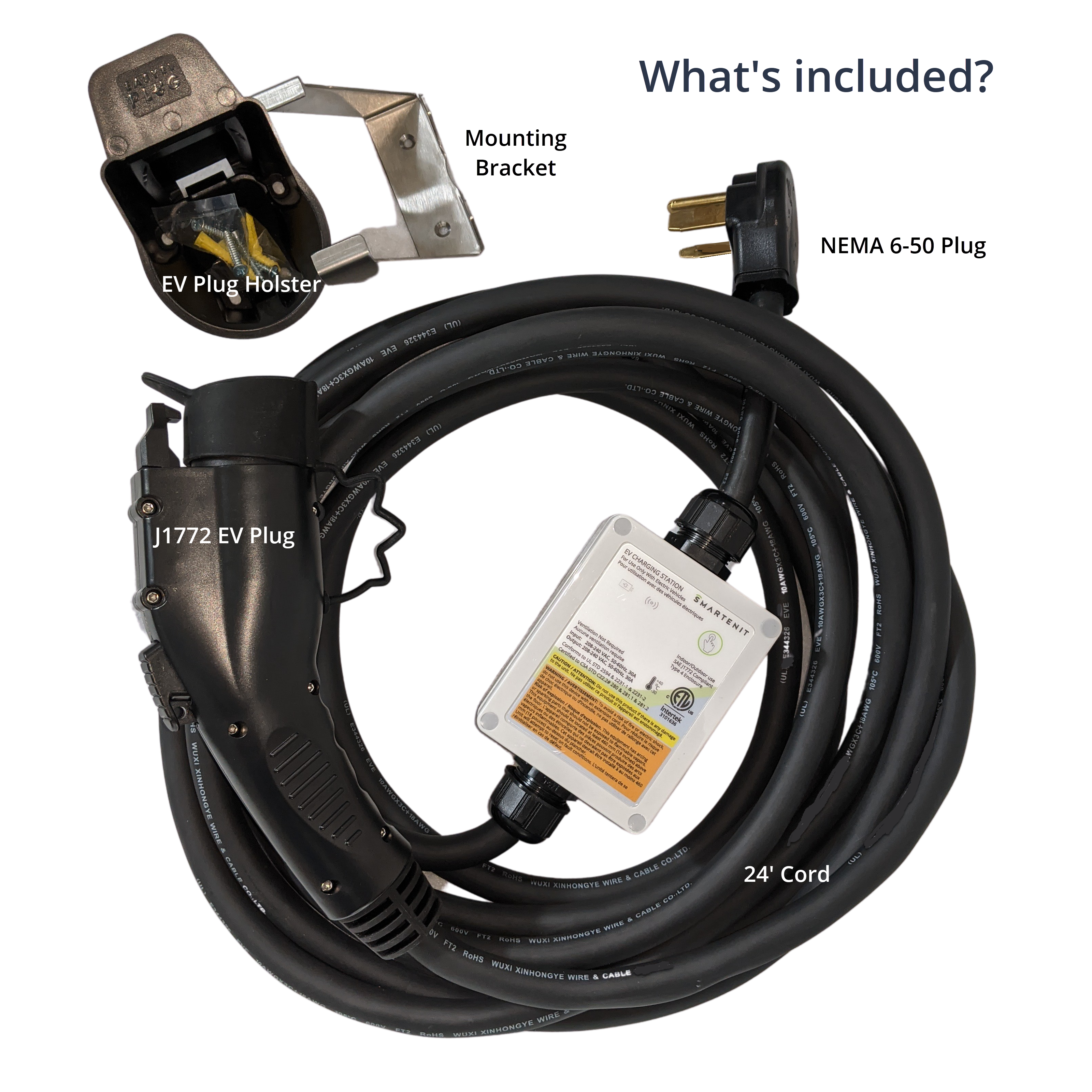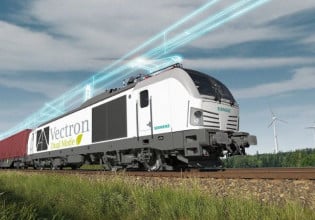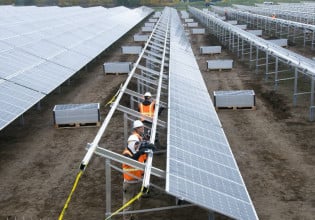EV Charging Cable Comes to Apartment Renters in California
A new electric vehicle charging cable has been launched to offer grid-optimized charging directly to consumers living in apartments or other multi-unit buildings in California.
California-based companies ev.energy and Smartenit have launched a smart electric vehicle charging cable geared toward residential consumers who live in apartment buildings and condominiums.
The product, called SmartElek, enters the largely untapped market of EV drivers living in apartment buildings or multi-unit dwellings who don’t have charging ports installed in their residences and instead rely on public charging stations.
SmartElek is a smart charging system that allows apartment renters to juice up their electric cars from any outlet in their parking garage or condo unit. Image used courtesy of ev.energy
The lightweight mobile charging cable, provided through Smartenit, can connect to ev.energy’s software platform through a WiFi-connected modem, allowing users to schedule grid-optimized charging sessions outside of peak hours. Residential electricity customers can then claim rebates and cash-back rewards from their utility provider for optimizing their EV charging—a benefit typically only available to homeowners.
EV Charging Cable for Apartments, Multi-Unit Dwellings
SmartElek was formed from a partnership between Palo Alto-based ev.energy, a certified B Corporation offering grid-optimized EV charging software; and Smartenit, an Irvine-based IoT firm that markets various hardware and software systems.
A closer look at Smartenit’s SmartElek cable for residential charging. Image used courtesy of Smartenit
Priced from $350 to $500, SmartElek is generally competitive with the broader in-home charging market. HomeAdvisor estimates that the average cost of installing a Level 1 charging station is about $750, while a Level 2 station typically costs $1,100 (as of August 2022).
The SmartElek cable is offered in 120- or 240-volt power draws with 16- and 30-amp outputs, matching that of the typical Level 1 and Level 2 chargers found at public charging stations. Customers can purchase the cable, plug it into a power outlet, and optimize their charging and track rebates with the ev.energy app.
Before the launch earlier this week, ev.energy and Smartenit signed on a few electricity providers that operate within California’s Community Choice Aggregation program: MCE, which has 580,000 customer accounts covering four Bay Area counties; and Silicon Valley Clean Energy, serving 270,000 customers in Santa Clara County. The organizations agreed to provide full or partial rebates on the charging cable to income-qualifying customers.
ev.energy previously teamed up with Silicon Valley Clean Energy in 2020 to test an end-to-end residential charging program that saved participants more than $200 annually on their electricity by charging during off-peak periods.
Gaps in Residential Charging Access Weaken Mass EV Adoption
The U.S. Department of Energy’s Alternative Fuels Data Center currently counts more than 42,000 public Level 1 and Level 2 charging stations scattered nationwide, with about 97,000 ports in total (not including fast-charging stations). The United States has about 1.7 million EVs on the roads today, according to recent estimates from Experian. As EV sales are projected to climb from their already-elevated levels, so will the demand for more charging options.
Estimates vary widely on exactly how many people own residential charging ports in the United States. But for renters and people with older houses, the lack of an in-home charging source is consistently identified as a significant barrier to EV adoption. In a 2021 study, the National Renewable Energy Laboratory projected that even in a scenario of 100 percent light-duty vehicle electrification, about 25 percent of plug-in EVs still wouldn’t have home charging. Of that figure, 45 percent are single-family detached homes, while 40 percent are apartments.







